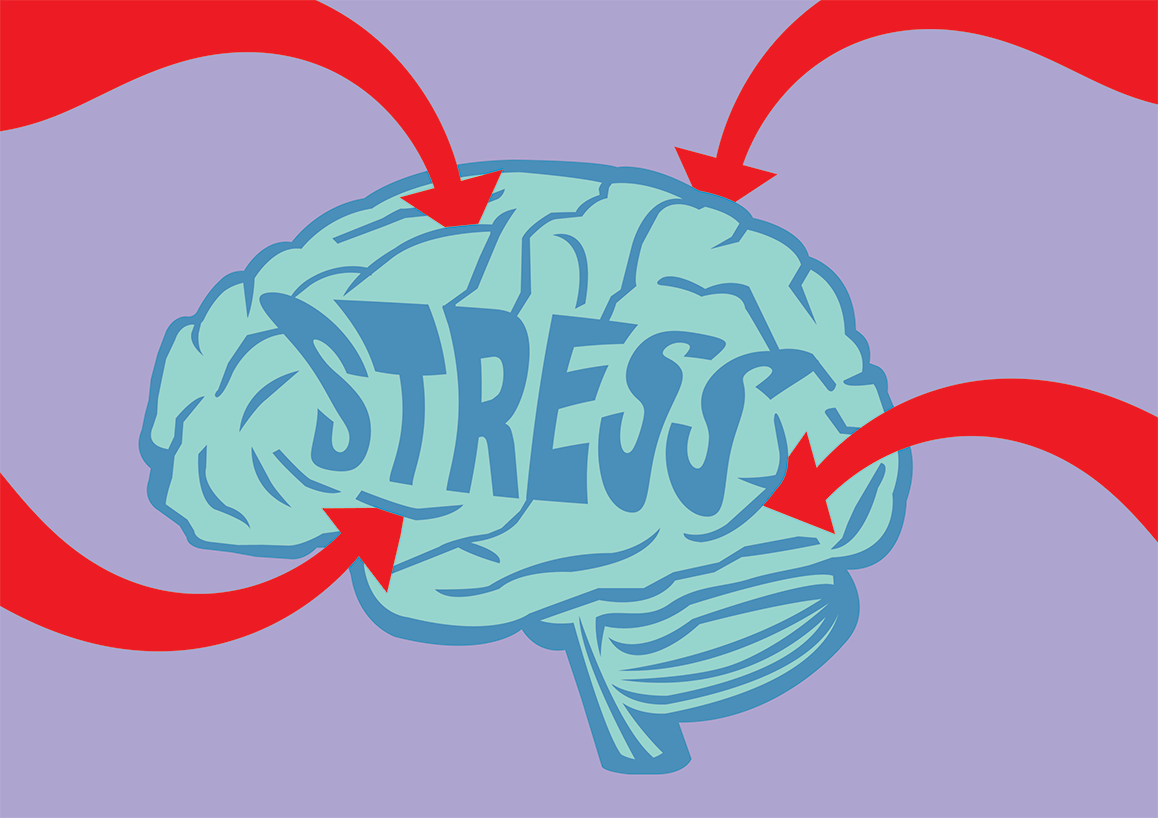Students are heading back to school, some to buildings with new rules requiring masks and social distancing and others to virtual classrooms to avoid community spread altogether. But the risk of contracting the deadly coronavirus is not the only danger facing children today. Educators should do more to protect their students from the impact of another threatening malady: stress.
Such is the argument by Bruce Wexler, professor of psychiatry in the Yale School of Medicine, and Goldie Hawn, founder of the Goldie Hawn Foundation and MindUP, a public charity that provides children with social-emotional skill development, in their article published last week by The Hechinger Report.
Are you wondering if it’s a bit alarmist to equate the effects of stress with the severity of COVID-19, which has already killed 800,000 people worldwide? Well, the stakes are higher than you might realize.
Stress Levels Are High
Stress is at a historic high this year. (Hey, you know. You’re living through 2020, too.) The American Psychological Association polled U.S. adults in late April and early May of 2020 about their stress levels related to the coronavirus pandemic. The average stress level reported was not only significantly higher than in 2019, but it was also “the first significant increase in average reported stress since the survey began in 2007.”

Of course, children and teenagers are not immune to many of the same stressors impacting adults. They have had to cope with the emotional toll rising from disruptions to their home and school environments; the inability to visit friends and family; the fear of or the actuality of having loved ones sick or dying from COVID-19; and the heightened visibility of police brutality. However, research on children’s stress in the time of COVID-19 is so far scant and conflicting.
One recent survey in the United Kingdom found that anxiety levels actually dropped among teens, perhaps attributable to having fewer stressful social interactions, such as for the differently-abled or for victims of bullying.
But many anecdotes also point to a rise in stress and anxiety in young people, especially for those who already struggled with anxiety and depression before the pandemic. Dr. Adiaha Spinks-Franklin, a developmental behavioral pediatrician at Texas Children’s Hospital and associate professor at Baylor, has observed among her patients an increase in sleep issues and depression symptoms, most often resulting from social isolation, according to a New York Times report.
As we await more robust research on the stress levels of children and adolescents related to COVID-19, here’s what we know is at stake for the many children and teens who are experiencing stress.
How Does Stress Affect Brain Development?
Wexler and Hawn argue that we are not paying enough attention to the long-term impact that stress has on childhood brain development.
They explain that decades of neuroscience research on how stress and trauma affect the brain and cognitive development paint a bleak picture if we don’t act. If educators don’t immediately start mitigating the stress that students are currently feeling—and have been feeling for months—students’ health and futures are at stake.
Here’s what the research tells us, as laid out by Hawn and Wexler:
- Stress stifles the brain’s development of cognitive skills categorized as “executive function,” including focused attention, self-control, flexible thinking, and working memory.
- These traits are so crucial to success in school, career, and health outcomes that they are better at predicting school success and high school graduation than IQ.
- With underdeveloped executive function, children are more likely to end up:
- misusing drugs
- developing criminal records,
- facing unemployment
- developing physical health problems,
- developing mental health problems,
- battling depression and suicide, and
- having great difficulty being members of the 21st-century global economy.
The impact of ongoing stress on childhood and adolescent brain development might not be limited to the global pandemic. The long-lasting and devastating effects on brain development could even follow them into adulthood. That means that to protect your kids and their quality of life, we have to make sure they mask up and power up their brains.
What Can We Do?
Neuroscience predicts the potential long-term impacts of the current rampant stress on students, but it also offers evidence-based solutions to protect and rev up children’s cognitive development.
Hawn and Wexler point to proven brain-training solutions listed in a September 2019 report by BrainFutures, a national nonprofit committed to improving society by promoting effective, neuroscience-based brain fitness initiatives. The report lists 10 evidence-based and peer-reviewed programs implemented in schools that meet the rigorous criteria set by BrainFutures’ panel of experts. Included in the list is the Fast ForWord product.
Fast ForWord, like the other 9 programs on the list, deliberately develops executive functions such as working memory, focused attention, and processing speed.
Designed by leading neuroscientists, including Michael Merzenich, the famous “father of neuroplasticity” and co-inventor of the cochlear implant, the Fast ForWord product stands out from some of the other brain fitness programs. Unlike the others on the list, which include mindfulness and neurofeedback programs, Fast ForWord offers 3-in-1 programs that simultaneously develop cognitive, reading and language, and social-emotional skills. Fast ForWord exercises don’t stop at training executive function skills; students walk away from the program as skilled readers and learners as well.
What Now?
With brick-and-mortar schools reopening and cameras getting turned on in virtual classrooms—and as parents send their children back to school (with a sigh of relief, perhaps?)—we must do more than just be cognizant of stress and mental suffering. While it is also important to provide mental health resources, trauma-informed pedagogy, and your empathy, this is not enough. Educators must also nurture the development of students’ executive function with proven brain training programs. There’s too much on the line to not. As Hawn and Wexler insist,
Now, it’s an imperative. Many of the report’s featured programs are web-based and can—and should be—used whether instruction is provided in school, at home or both.
...
How can we afford to introduce new programs now?
How can we afford not to?
If we fail to take this action, our children may escape the immediate physical illnesses associated with Covid-19 but suffer a lifelong compromise of cognitive function and mental health. These effects will be greatest among children in disadvantaged communities who can least afford them, adding to disparities that already challenge the well-being of our country.
Our students’ brains are their greatest assets. Let’s invest in them.
Sources
Brain Fitness and Executive Function: Evidence-Based Interventions That Improve Student Outcomes. BrainFutures. September 2019.
Coronavirus: Teens' anxiety levels dropped during pandemic, study finds. BBC.
Stress in America™ 2020. American Psychological Association. May 2020.
When Things Aren’t OK With a Child’s Mental Health. New York Times. August 10, 2020.
Why policymakers and school leaders can’t ignore how the pandemic hurts childhood brain development. The Hechinger Report. August 28, 2020.
Learn more about the Fast ForWord Reading program for grades K-5 and the Fast ForWord Literacy program for grades 6-12.



